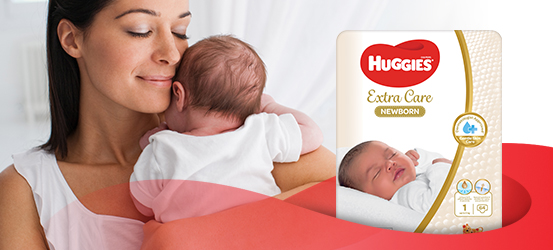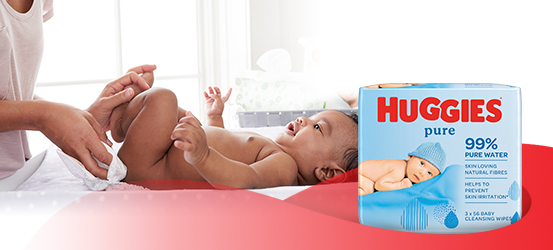We’ve scoured the latest research and fertility advice to compile this big list of ‘getting pregnant tips’ to help you out.
For would-be parents (even those under 35), getting pregnant is not always as straightforward as you would expect. Even in your most fertile time of life, generally your mid-twenties, your chance of falling pregnant is between 20-30 % in any one cycle.
There are lots of different factors that can affect your fertility. Below is a compilation of getting pregnant tips, many of them evidence-based, which may help you improve your chances.
The most important information you need to have, if you are planning to have a baby, is a good understanding of your own cycle – and when you are likely to ovulate.
You are most fertile one to two days before ovulation. Having sex after ovulation is often too late for conception.
Fortunately, a key sign of impending ovulation is the change in cervical mucus several days before to a clear, stretchy, consistency. Charting your cervical mucus is a great way to improve your chances of getting pregnant.
Dietary tips for getting pregnant
Can you eat your way to pregnancy? The Nurses’ Health Study in association with the Harvard School of Public Health conducted in 2007 discovered certain links between diet and fertility. This study ran for eight years with over 18,000 women participating. This resulted in “The Fertility Diet” advocated by some as a way to improve your fertility.
Here are the main findings from this study:
Avoid “trans-fats”, which are unsaturated fatty acids, found in some margarines, in fats used in deep frying and pastry dough. It is also in products containing ‘partially hydrogenated oil’ on the ingredient list (foods like deep-fried fast foods and takeaways, packaged biscuits, cakes and pies). As little as 4.5 grams a day is thought to raise testosterone levels in women, reducing fertility. Trans-fats are also bad for your heart and clog up your blood vessels.
Use more unsaturated vegetable oils, which improve insulin response and cool inflammation. Nuts, seeds, and cold-water fish like salmon and sardines are also good for improving insulin response.
Increase vegetable protein – like beans, peas, soybeans or tofu – to replace some of the protein you would otherwise get from meat.
Choose fibre-rich slowly-digested carbohydrates, such as whole fruits, whole grains and vegetables.
Drink whole milk rather than skim milk – or aim for a daily serve of full-fat yoghurt.
Boost your folic acid intake to 400 micrograms a day – and take a multi-vitamin.
Get extra plant-based iron from whole-grain cereals, spinach, beans, pumpkin and tomatoes.
Reduce your coffee intake and alcohol intake to one a day each – and skip sugary soft-drinks. Drink lots of water.
Increasing Vitamin E and Zinc for men may improve sperm health.
Lifestyle tips for getting pregnant
Quit smoking. Toxins in cigarette smoke accelerate the aging of a woman’s eggs and damage the fallopian tubes.
Moderate daily exercise improves fertility, according to one study which recommends women aim for 30 minutes a day of gentle exercise.
Try to normalise your weight. Around 40% of women who fail to ovulate are at either end of the weight spectrum; most experts suggest aiming for a BMI (Body Mass Index) of 20 to 25 will optimise your chances of conception.
Chill out. Make yoga, deep breathing, tai chi or meditation a part of your life. Take a long leisurely walk when life gets a bit much.
Tips for: Things worth trying to increase your chances of getting pregnant
Make sex fun. You’ll be doing rather a lot of it so why not enjoy it? If you loosen up and don’t make it all about babies, you’ll have such a fabulous time trying to get pregnant you’ll both be keen to do it all over again – as often as possible!
Talk to a fertility expert if things don’t happen for a while (when you are both over 35 and nothing’s happened after six months, go see a specialist). There are also strategies you can try for yourself; for example, men with a low sperm count may be advised to have intercourse every other day to allow his sperm count to build up. Your doctor may even recommend that your partner refrain from ejaculating during the days leading up to your most fertile period.
Just to confuse the issue – some studies show that men who don’t ejaculate for over seven days can have lower fertility because so many of the sperm cells are older and less fertile! So you need to find a happy medium.
Tips for: Things to avoid when you’re trying to get pregnant
Coffee: According to some studies, as little as one cup of espresso coffee a day can reduce a woman’s chance of conceiving by up to 50%. And it won’t hurt your partner to join you in abstaining from caffeine; some studies suggest coffee also affects sperm quality.
Alcohol: Best is for both of you to steer clear of alcohol as it is bad for a man’s sperm and for a woman’s fertility.
Stress: Some people and some places just fill us with angst; try to get rid of unnecessary stressors when you’re trying to conceive. Stress has been shown to affect the performance of hormones that influence ovulation.
Chemicals and hazards: Various studies link low fertility to the presence of many everyday chemicals including pesticides, painting and printing fumes. Try to minimise your exposure to these; e.g. you might postpone fumigating or painting your house.
Men should avoid too much cycling, hot baths or showers and rather wear loose-fitting pants so they don’t overheat the environment for sensitive sperm.
Athlete-level fitness: There’s such a thing as being too fit – one study showed that women who worked out for four hours or more per week reduced their chance of conception because of their low body fat.


















